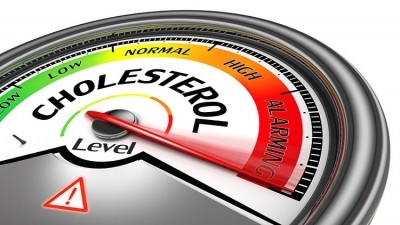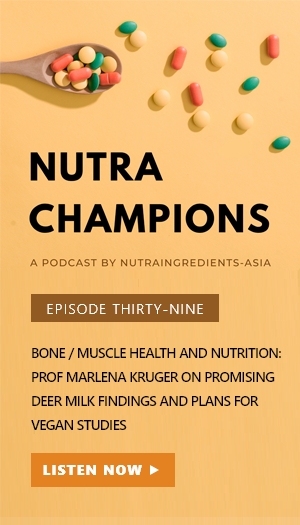Probiotic L. bulgaricus may not help with weight loss but could decrease blood triglyceride levels – new trial

Elevated levels of TG are a symptom of metabolic syndrome, a cluster of conditions that includes obesity and abnormal lipid (fat) levels.
The researchers wanted to examine if L. bulgaricus could contribute to a reduction in body weight and alleviate health risk factors associated with obesity. L. bulgaricus is commonly found in the gastrointestinal tract and in fermented dairy products such as cheese, yoghurt, and kefir.
In a placebo-controlled trial, researchers observed overweight patients at the Chinese Medical University Hospital in Taiwan.
They found that L. bulgaricus did not affect the body weight, fat percentage, or body mass index (BMI) of the participants. However, it resulted in a notable decrease in blood TG levels.
“Therefore, while daily supplementation with L. bulgaricus may not lead to a reduction in body weight, it could potentially offer health benefits for obese individuals,” the researchers wrote in Metabolites.
Clinical trials that examined the influence of probiotics on obesity-related factors have yielded inconsistent outcomes.
Some reported significant decreases in body weight and/or body fat with probiotics, while others indicated no effect or even increased body weight. These findings suggest that specific probiotics could treat or manage health symptoms in overweight individuals.
Thus, researchers devised a study to examine the effectiveness of daily L. bulgaricus supplementation in lowering body weight and addressing risk factors related to obesity.
In September 2021, 36 overweight participants were assigned to either a probiotic or a placebo group. The probiotic group were given L. bulgaricus powder (containing 1 × 108 colony-forming unit (CFU) of the probiotic) daily for 12 weeks. The placebo group were given placebo powder daily over the same period. Before and after the trial, the researchers ran blood tests and profiled the body composition for each participant.
“Twelve weeks of supplementation with L. bulgaricus failed to induce weight loss in the subjects,” the researchers observed.
However, there are potential benefits of probiotic L. bulgaricus for overweight individuals with high blood TG levels.
“Overall, there were significant improvements in the regulation of TG and lipid content in VLDL and HDL, which were not observed in the placebo group,” said the researchers.
VLDL stands for ‘very low-density lipoprotein’. Lipoproteins are made up of proteins and fats (cholesterol and TG). VLDL is one of the three main types of lipoproteins and contains the highest amount of TG. VLDL is known as ‘bad’ cholesterol.
HDL, or high-density lipoprotein, is known as ‘good’ cholesterol.
The distribution, composition, and population of lipoproteins in the bloodstream are crucial indicators of overall health.
“Lipoproteins serve as transport vehicles, allowing lipids to be carried throughout the body to various tissues and organs,” researchers explained. “The metabolic profile analysis shows that daily supplementation with the probiotic, L. bulgaricus, had a positive effect by improving the lipoprotein lipid profile in overweight people.”
Daily supplementation with L. bulgaricus may not lead to weight loss, but it could reduce blood TG levels, thus having a positive impact on preventing diseases associated with metabolic syndrome.
“Further large-scale and long-term trials with higher dosage treatments are needed to clarify the effect of L. bulgaricus across various criteria for optimal application,” the researchers concluded.
Source: Metabolites
DOI: 10.3390/metabo14020129
“The Efficacy of Lactobacillus delbrueckii ssp. bulgaricus Supplementation in Managing Body Weight and Blood Lipids of People with Overweight: A Randomized Pilot Trial”
Authors: Pei-Yi Chu, Ying-Chun Yu et al.
We will be taking a closer look at Clinical Nutrition in our Growth Asia Summit 2024 this coming July, which will feature insights from a wide range of industry leaders and experts. Don't miss out – register here today!



















